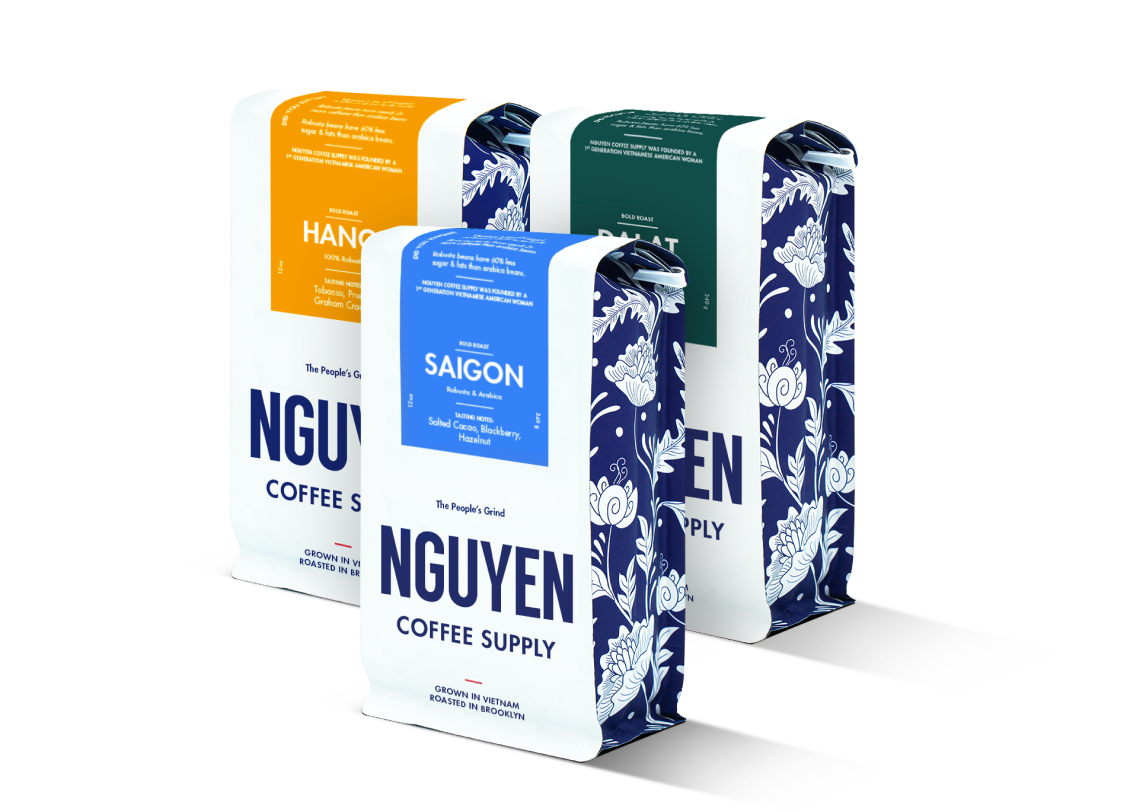

- FEATURED ON IMBIBE

Create for yourself or as a gift for your loved ones
Subscribe nowMe and mom just enjoyed the Nguyen phin drip experience. Wow. Proud of your work. We without hesitation enjoy the Vietnamese coffee and recommend your products. Thank-you to the Nguyen staff and tradition. From Canada eh!
Coffee is one of the most widely consumed beverages in the world with over two billion cups being enjoyed every day. The two most widely consumed types of coffee are arabica and robusta. While arabica is more commonly consumed in cafes and coffee shops in countries such as the United States, robusta coffee is rising in popularity as the next wave of coffee.
Long used in instant coffees and blends, robusta coffee is experiencing a renaissance in the specialty coffee world. Robusta coffee not only offers a unique tasting experience, but it also provides a number of benefits.
Robusta coffee is a species of coffee known for its bold, deep flavor. Robusta comprises 40% of global coffee production and grows on bushes and trees with cherries that ripen for processing and drying. It is the main type of coffee produced in Vietnam, which is the second largest producer of coffee in the world.
Robusta coffee beans are rounder and smaller than their arabica cousins, and they have a straighter center cut (line) that runs down the middle. In terms of flavor, robusta coffee is nutty, dark chocolatey, and bold.
For those looking to cut back on their coffee consumption, robusta coffee has nearly twice the caffeine content of arabica coffee beans at 2.7% compared to 1.5%. Consequently, one can drink less robusta coffee while reaping the same benefits of multiple cups of arabica coffee.
Additionally, robusta coffee has higher amounts of chlorogenic acid and antioxidants compared to arabica coffee. Studies conducted on the effects of chlorogenic acid have suggested health benefits such as lower blood pressure and higher metabolism, making it an ostensibly healthier coffee choice overall.
In addition to its benefits on the individual, robusta coffee offers many benefits to the environment and ecosystems around us. Robusta grows at a variety of climates and altitudes compared to arabica, which requires precise conditions in order to thrive. Robusta is also naturally more resilient and hardy– its high caffeine content makes it more pest resistant than arabica.
As such, robusta coffee may be the key to sustainable coffee production in the future since it can flourish more readily than arabica coffee with less pesticides and resources needed to produce large yields.
As specialty robusta coffee continues to proliferate around the world, we will see large areas of land conserved or salvaged for production where arabica coffee can no longer be produced.
One of the best benefits of robusta coffee is also in its ability to save everyone money. For farmers and producers, robusta coffee requires less chemicals and pesticides, and can be produced with less intensity due to its natural resilience as a plant.
For coffee drinks and consumers, robusta coffee is the ultimate deal as less coffee is needed to get the same amount of caffeine extracted from arabica coffee. A bag of robusta coffee can stretch twice as long as a standard bag of arabica coffee if one were to consume it based on caffeine content.
Ultimately, robusta coffee has a number of benefits that go beyond just health. Robusta coffee is sustainable, economical, and most importantly, delicious (especially when prepared in a Vietnamese phin filter). As robusta continues to rise in popularity, the entire coffee industry and planet will see nothing but benefits for decades to come.